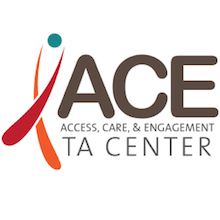
In these uncertain times, your clients may be experiencing job losses or other unexpected income or life changes. Remind your clients that they may be able to get covered or stay covered with Marketplace or off-Marketplace health insurance through a Special Enrollment Period (SEP). Some clients may also be newly eligible for Medicaid or Children’s Health Insurance Program (CHIP).
There are many life events and special circumstances that create Special Enrollment Periods
People who lose employer-based health coverage because of a change in job status are eligible for the “loss of coverage” SEP. This SEP also applies for people who lose their employer coverage because their work hours have been reduced, or because their employer is now contributing less (or nothing at all) to the premium amount. This SEP also applies when a spouse has lost employer-based health coverage.
There are many other qualifying events that create Special Enrollment Periods, including common life events and special circumstances. Check out the Health Resources and Service Administration’s HIV/AIDS Bureau (HRSA HAB) funded ACE TA Center’s Special Enrollment Periods Consumer Fact Sheet for details (updated version coming in 2024).
Clients may be eligible for comprehensive health coverage through the Marketplace, or through off-Marketplace plans, Medicaid, or Medicare
Remember that the Ryan White HIV/AIDS Program (RWHAP) is not health insurance. Whenever possible, help your clients find affordable plans that provide comprehensive health coverage.
- Help your clients explore health insurance through Marketplace or off-Marketplace options. In many states, the RWHAP (including ADAP) may be able to pay premiums, or may purchase unsubsidized plans for some clients. These options are available in many states, whether or not they have expanded Medicaid
- In states that have expanded Medicaid, some clients may also become newly eligible for Medicaid due to reduced income. Medicaid and CHIP enrollment are open all year long.
- Eligible clients that are turning 65 should enroll in Medicare if they do not have employer coverage. For more, watch a replay of the ACE TA Center’s April 22 webinar: The Basics of Medicare for Ryan White HIV/AIDS Program Clients.
Access to health coverage for COVID-19 related health concerns
Medicare and all group health insurance plans (including Marketplace and off-Marketplace plans) are required to cover COVID-19 testing without cost-sharing, such as deductibles, co-pays, and coinsurance. However, services that are not related to testing may be subject to cost-sharing. Many state Medicaid programs are issuing similar notices.
State-specific SEP updates
In addition, 12 states (CA, CO, CT, ID, MD, MA, MN, NV, NY, RI, VT and WA) and Washington, D.C. that run their own marketplaces established SEPs because of the COVID-19 emergency. Depending on the state, the SEP may still be open or extended. As of August 2020, the SEPs in CA, ID, MD, NY and Washington D.C. are still active. In these states, anyone can enroll in or change coverage even if they have not experienced another qualifying event. (Note: Idaho's SEP is open to individuals who have recently lost employer-sponsored health insurance due to COVID-19, not to previously uninsured individuals.) Depending on the state, the SEP may still be open or extended. To see the full list and details about what is happening in each state, check with your state’s marketplace, or see these interactive maps from the Kaiser Family Foundation and The Commonwealth Fund.
Reminder: HRSA HAB continues to update its list of Coronavirus 2019 (COVID-19) Frequently Asked Questions (FAQs) and resources for RWHAP recipients, subrecipients, and stakeholders.
Have a question about this or other health coverage policy updates? Email the ACE TA Center
Above from the ACE TA Center Listserv